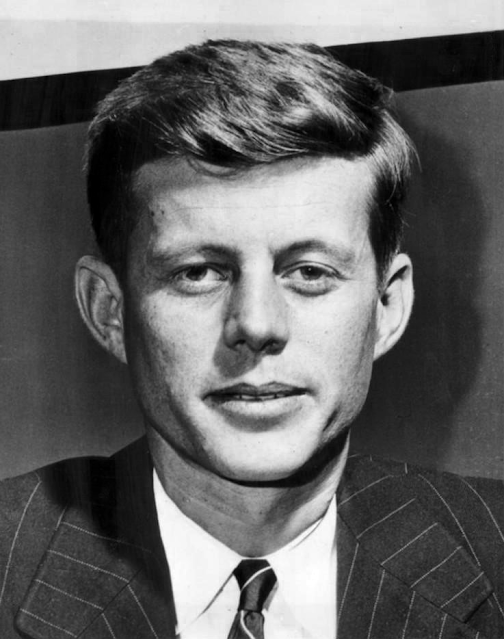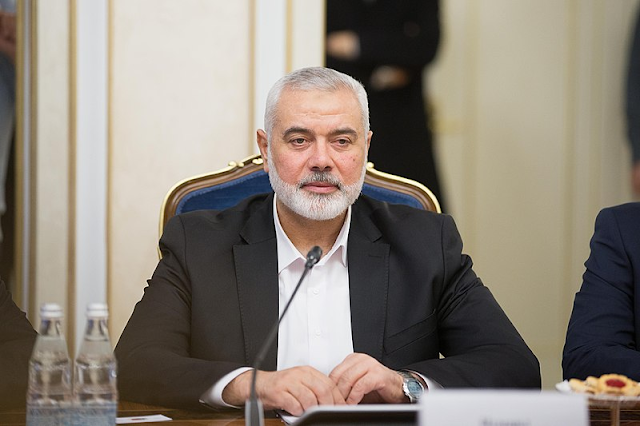Kennedy's car just after the fatal shot
(credit: Abraham Zapruder, via Wikimedia Commons)
A Thoughtful Day
Today
is a deeply thoughtful day for anyone over 65, almost anywhere on earth. Why do
I say so?
On
this day sixty years ago, American president John Kennedy was shot dead.
For
younger followers of this space, you might consider where you were, whom you
were with, and what you were doing on September 11, 2001. That day is called a
“landmark” day because everyone over 25 can answer those questions. That day
changed everything. But for those of us who are a bit older, November 22, 1963,
changed the world even more.
He
was only one guy. His supposed assassin, Lee Harvey Oswald, was shot and killed
in the basement of the Dallas Police Department two days later. The guy who
shot Oswald was a long-time Mafia associate who was dying of cancer. In a metaphor
then, I’ll say the whole event stunk like old fish guts. It still stinks. Too
many people who were there were certain one of the shots – probably the fatal
one – came from in front of Kennedy’s car. Oswald was positioned way behind it.
And there are so many other inconsistencies in the “official” version of what
happened that day.
There
is film footage of the actual shooting on YouTube if you want to see for
yourself. Abraham Zapruder, a citizen of Dallas, was filming the motorcade. He sold
his film to the publishers of Time magazine who showed it to the world.
I’m
not a conspiracy nut, but I do – like many people all over the world – think
there had to be a conspiracy behind those events. If you’re under 65 and you
find yourself interested in the controversy, Oliver Stone made a documentary in
2021 on the improbability of the Warren Commission findings. JFK Revisited.
It’s on Crave now. The vital scene from Zapruder’s footage is in Stone’s film.
But
why for us old guys was it such a terrible day. Many more died in 9/11. Why
does one man’s assassination loom over those who recall?
Because
so many good things ended, and so many other bad ones began.
I
read a variety of stuff. I’m 74, and no, I’m not senile. Not even a little. I
don’t read endlessly about that day or, more generally, about JFK’s life,
actions, and words. But, yes, I’ve read about 20 books on that man and that day.
Over 60 years, not that many.
Kennedy
would have kept the U.S. out of the Vietnam War. I’m as sure of it as one can
be about any hypothetical. He was working to do so even then, in 1963. He would
have worked more effectively to fix America’s race problem. More than what was later
done without him? Yes.
He
would have reformed the financial system, likely ended the Federal Reserve.
He
would not have gotten “played” for a sucker by the CIA again. The Bay of Pigs
fiasco had finished him with trusting that agency. By the time of the Cuban
Missile Crisis, he also no longer trusted generals. Too many warmongers among
them. He’d seen war. Up close. And he knew the buck stopped with him.
He
was in charge by late ‘63, he was learning fast, and he was a decent man.
I
could go on and on.
Did
we learn anything from it? The US got into a lot of foreign wars after that
date and supported a lot of corrupt foreign leaders. The civil rights misery
goes on, though it is improving slowly. The financial system is beset by ills
every few years. Right wing economists claim they’re full of wisdom when markets
are booming. The profits are due to their skills which are far beyond the
intelligence of the rest of us. But they hide when markets crash. The few still
around say no one could have foreseen this latest crash. Successes are due to
clever financiers. Failures are beyond human control. Hypocrisy never troubles greed.
Yes,
JFK’s father was maybe the worst stock market manipulator ever. But JFK grew
out of his father’s influence before he even got to the White House.
Yes,
he was promiscuous. So were Thomas Jefferson, Nelson Mandela, Martin Luther
King, etc. The list is nearly endless. Catherine of Russia and Elizabeth I of
England were promiscuous if anyone wants to begin false comparisons. Leaders
often are. Male, female, good or bad. It has nothing to do with their job.
But
he was handsome, funny, and brave. (Read PT 109). And so smart. He might
even have brought us world peace. I know I was hoping. Nukes haunted us more in
those times. But he and Soviet leader Khruschev had begun to really talk.
And
I have to describe the larger context. America bankrolled Japan and most of
Europe and many other smaller nations in those days. She forgave her biggest enemies,
Germany and Japan, and turned them into friends. What nation in history had
ever done that? JFK was all the best parts of America for us then.
I
was 14, a smart kid, and a prolific reader so, yes, I really did know all of
this.
Doug
Cameron lives near the school, close enough to go home for lunch. He is
standing in the south-east entrance of Hardisty Junior High, telling a circle
of hushed teenagers what’s on the radio and tv. Then, uproar takes over.
A
radio channel is on the p.a. I can barely hear it. Other kids are yelling,
crying. I start trying classroom doors. Teachers were supposed to lock their
rooms at lunch, but a lab is open. I step in. Walter Cronkite tells me President
Kennedy is dead. It’s confirmed. I stand very still as something inside me
crashes. Tears begin to roll down my face. For a decent man and his wife and
kids and the U.S. to the south of me, but even more, at 14, I know it’s the end
of innocence for us. It’s the end of believing that sometimes the good guys can
win.
A
t.v. personality named Dick Clark probably said it best. Someday, we would laugh
again. But we would never be young again. For millions of us, the distrust and despair
of the modern world began on that day. JFK is dead.
Congressman John F. Kennedy (1947)
(credit: US Chamber of Commerce, via Wikimedia Commons)





